Thomas Mann House Events Archive
May 2020
#MutuallyMann – A Virtual Reading Initiative
Worldwide
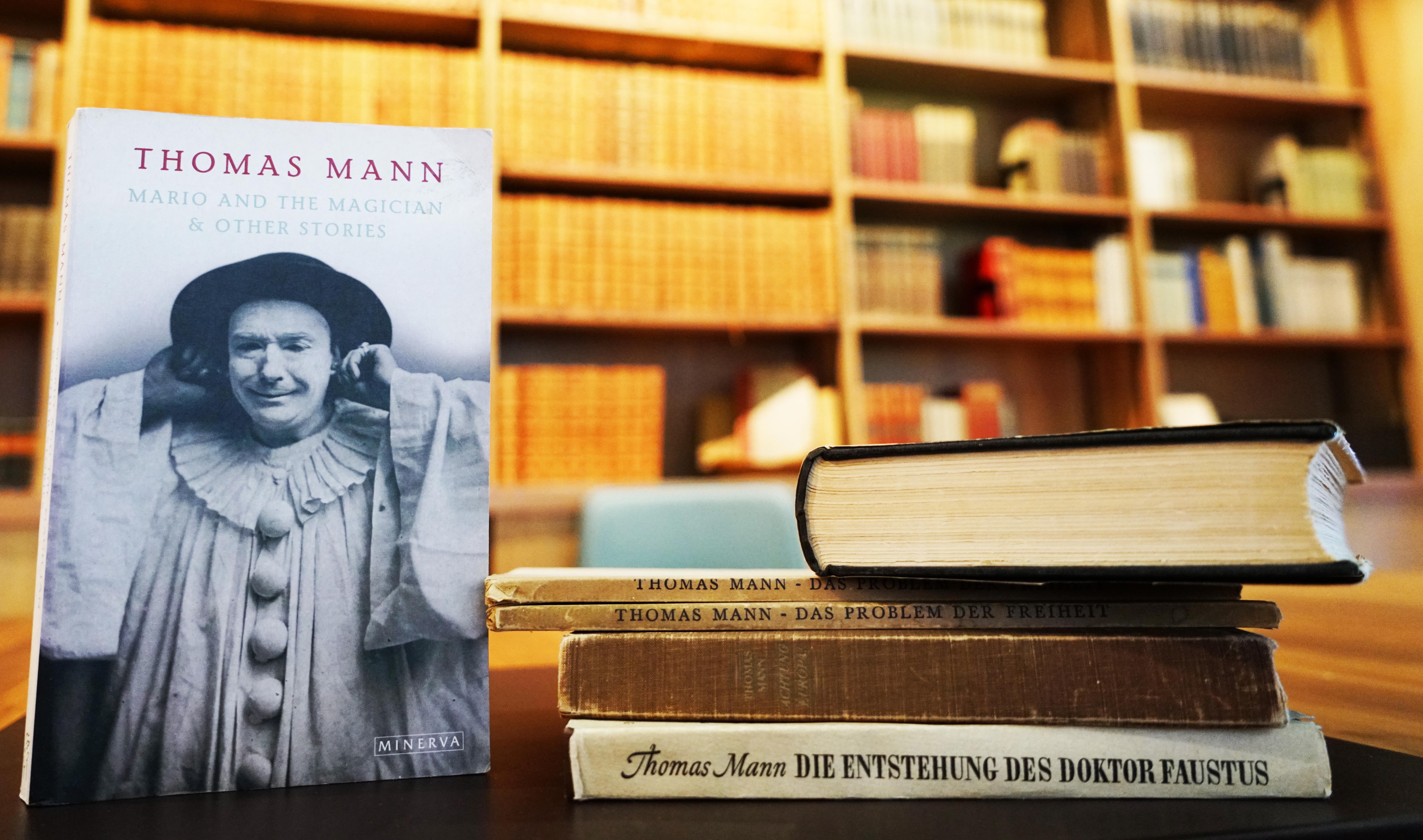
Information
We, the Thomas Mann House and the S. Fischer Verlag publishing house, invited readers all over the world to read Thomas Mann’s novella Mario and the Magician over the course of one week and share thoughts, questions, ideas or favorite quotes with each other.
For the initiative, we gathered a group of exciting #MutuallyMann reporters, renowned authors and intellectuals to share their thoughts on the book, too! Participants included:
Tobias Boes, Professor of German and literary scholar at University of Notre Dame; Adrian Daub, Professor of Literature at Stanford; Veronika Fuechtner, Professor of German at Dartmouth; Elisabeth Galvan, Professor of German Literature at Università di Napoli L’Orientale; Morten Høi Jensen, author and critic working on a book about The Magic Mountain; William Kinderman, acclaimed pianist and Professor at the UCLA Herb Alpert School of Music; Friedhelm Marx, Thomas Mann Fellow and Professor of German Literature; Andreas Platthaus, Thomas Mann Fellow and head of literature and literary life at Frankfurter Allgemeine Zeitung; Hedwig Richter, Professor of Modern and Contemporary History; Donna Rifkind, author of The Sun and Her Stars: Salka Viertel and Hitler’s Exiles in the Golden Age of Hollywood; Alex Ross, music critic for The New Yorker, Kai Sina, Professor of German Literature; Katharina Sykora, Thomas Mann Fellow and art historian and Hans Wißkirchen, President of the German Thomas Mann Society.
From April 27 to May 1, users posted their opinions, photos and comments on social media with the hashtag #MutuallyMann. We channeled and collected many of them and those of our reporters on this blog. Check out our social wall to read all the contributions by our experts and see what was happening on #MutuallyMann.
Find all information on the #MutuallyMann website.
Partner
This initiative is a cooperation of the Thomas Mann House and the S. Fischer Verlag publishing house.

Villa Aurora & Thomas Mann House e. V. is supported by the German Federal Foreign Office and Federal Government Commissioner for Culture and the Media.

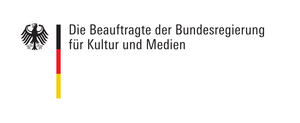
#Mann's LA
Worldwide

Information
Which places did he and his family visit? Who were his friends and acquaintances? What were the local concerns that kept him busy and are still hot topics in LA today? From fellow exile writers such as Feuchtwanger or Döblin and philosophers like Adorno and Horkheimer, to famous artists like Aldous Huxley and a film premiere in Hollywood: By granting access to diary entries, letters to friends, historical documents, maps, and anecdotes, the Thomas Mann House invites you to discover #MannsLA!
Episodes

Hanns Eisler - Composer and "Communist in a Philosophical Sense."
"The word 'friend' is a bit too intimate, but one can almost call it a paternal affection," composer Hanns Eisler described his relationship with Thomas Mann in retrospect. After fleeing Berlin and working as a visiting professor at the New School for Social Research in New York, Hanns and his wife Lou had settled in Los Angeles in 1942. Two years later, he and Mann met for the first time at a dinner at Arnold Schoenberg's house in Brentwood.

Theodor W. Adorno. By Alex Ross (music critic for the The New Yorker and author of the book The Rest Is Noise.
Of all the German-speaking émigrés who moved to the Los Angeles area during the Nazi era, the philosopher and critic Theodor Wiesengrund Adorno had perhaps the most openly antagonistic relationship with Southern California culture. Yet Adorno’s years in California were by no means unproductive. He may have been intellectually unhappy and financially pressed, but he benefited from close observation of Hollywood culture and formed friendships with a number of the émigrés.

Lion Feuchtwanger’s Villa Aurora and A Mutual Friend… By Friedel Schmoranzer (Villa Aurora)
Thomas Mann was a frequent guest at fellow writer Lion Feuchtwanger’s house. Mann called the Spanish revival villa on 520 Paseo Miramar a “true castle by the sea.” The Feuchtwangers were generous hosts and organized readings in Lion’s study. Thomas Mann used to be the guest of honor and moderator of theses evenings in German, whereas Charlie Chaplin used to have the first word at the English readings. Mann, a movie buff, admired Chaplin and enjoyed the Hollywood glamour Chaplin added to these events.
Read the full episode on Instagram, Facebook and Twitter

The NBC Studios
In 1941, the BBC approached Thomas Mann to ask him to address his fellow countrymen regularly in short radio speeches. He later reported that he could hardly believe this great opportunity at first: The regular broadcasts enabled the exiled writer to politically influence the German population in their mother tongue. Until his last speech in November 1945, Mann drove every month from Pacific Palisades to Hollywood, where he recorded his speeches for Germany in the NBC's Recording Department.
Read the full episode on Instagram, Facebook and Twitter

The Hollywood Fairfax Temple
After taking a closer look at the relationship between Mann and the First Unitarian Church, we would like to focus on Mann’s relationship with Rabbi Jacob Sonderling and the Society for Jewish Culture - Fairfax Temple. By 1941, when the United States entered the war, more than 6,000 German Jews had made it to Los Angeles, making the city the second-largest center of German-speaking Jews in America. An important hub and supporting organization for Jewish art and culture in Los Angeles was the Fairfax Temple and its Rabbi, Jacob Sonderling, who had a good relationship with Thomas Mann.

Salka Viertel. By Donna Rifkind, author of "The Sun and Her Stars: Salka Viertel and Hitler's Exiles in the Golden Age of Hollywood."
In her 1969 memoir "The Kindness of Strangers," the screenwriter Salka Viertel confessed that she didn’t remember the first time she was introduced to her good friend Thomas Mann. But she supposed that it must have been during the summer of 1940 in Los Angeles, most likely at a banquet for the Emergency Rescue Committee, whose work on behalf of European refugees both Viertel and Mann supported.

La La Land
During the decade the Manns lived in ’La La Land,’ Thomas and Katia embraced the city's film culture. Mann’s favorite theater seemed to be the Fox Village Theater in Westwood. Built in 1931, the theater with the iconic 170-foot tower was only 15 minutes by car from his home in Pacific Palisades and became a highly frequented spot for the Manns’ movie nights. They visited the theater with the remarkable Spanish modernist architecture on a regular basis.
Read the full episode on Instagram, Facebook and Twitter

Nelly Mann. By Michaela Ullmann, Exile Studies Librarian.
As the Nazis assumed power in February 1933, Heinrich Mann was one of the first intellectuals to flee Germany with his wife, Nelly. Like Thomas and Katia Mann, Heinrich and Nelly initially found refuge in southern France until the country fell to German occupation, whereupon they fled Europe.
Read the full episode on Instagram, Facebook and Twitter

Union Station
In the first years of his American exile, Thomas Mann was constantly on the move. From New York to Ottawa, Austin, Minneapolis, Seattle and LA - all in all, he gave well over one hundred lectures during this time. The aim was to convince the Americans of a united front against Nazi Germany.
Read the full episode on Instagram, Facebook and Twitter

First Visit in LA: The Shrine Auditorium
In February 1938, Thomas, Katia and Erika left Zurich for Thomas Mann’s first lecture tour throughout the United States. On March 23, they arrived in LA for the first time, on a ‘Streamliner’ train which Mann nicknamed ‘rocket train.’ He held his lecture, titled "The Coming Victory of Democracy," at the Shrine Auditorium, a venue in the shape of an amphitheater that could host more than 6000 people.
Read the full episode on Instagram, Facebook and Twitter

The Ongoing Housing Crisis
The struggle for social housing concepts and solutions is a long-lasting issue for the city of Los Angeles. On May 20, 1952, Thomas Mann noted in his diary: “‘Daily News’ publication on the scandalous slum housing in Los Angeles. Houses occupied by large families with children, living in one room for $45 a month. The owner lives in Hollywood. Huge cash outlays for armaments and external power while bills for housing improvements are voted down."
Read the full episode on Instagram, Facebook and Twitter

Alfred Döblin – Love Thy Enemy. By Stefan Keppler-Tasaki, University of Tokyo.
The Jewish-German novelist and physician Alfred Döblin arrived in Los Angeles after an excruciating flight through Europe that he described in his biography “Destiny’s Journey.” The exile community welcomed him in a ceremony held at the First Unitarian Church on October 26, 1940. Thomas Mann, although a frequent visitor of the place, was missing that day since he had to attend to his brother Heinrich’s arrival in New York.
Read the full episode on Instagram, Facebook and Twitter

Bruno Walter – A Concert with Obstacles
After fleeing from Germany in 1933, the world-famous conductor and composer Bruno Walter settled with his family in their new home on 608 N. Bedford Drive in Beverly Hills. Walter, who conducted the LA Philharmonic at the time, was already friends with the Manns from his time with the Munich State Opera in the 1910’s. They revived their friendship in Los Angeles.
Read the full episode on Instagram, Facebook and Twitter

Max Horkheimer – Watching the Rhine (from LA)
Max Horkheimer moved from New York into a bungalow on 13524 D'este Drive, Pacific Palisades in April 1941. While scouting for a new home in Los Angeles in 1940, he recalled in an interview that a realtor "showed him a house and, as realtors do, launched into praise of the neighborhood. Just recently, the realtor explained, another house had been sold to another gentleman from Germany — 'a Mr. Mann.’”
Read the full episode on Instagram, Facebook and Twitter
Partners
Villa Aurora & Thomas Mann House e. V. is supported by the German Federal Foreign Office and Federal Government Commissioner for Culture and the Media.


Exhibition: Thomas Mann »DEMOCRACY WILL WIN!«
Stiftung Buch-, Medien- und Literaturhaus München (Salvatorplatz 1, 80333 München)
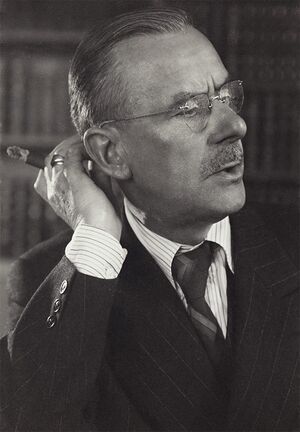
Information
»Es ist mit der Selbstverständlichkeit der Demokratie in aller Welt eine zweifelhafte Sache geworden. Es ist die Stunde gekommen […] für eine Selbstbesinnung der Demokratie, für ihre Wiedererinnerung, Wiedererörterung und Bewußtmachung – mit einem Wort: für ihre Erneuerung im Gedanken und im Gefühl.« - THOMAS MANN: VOM ZUKÜNFTIGEN SIEG DER DEMOKRATIE, 1938
We are currently seeing the fundamental values of democracy being called into question. Populism and nationalism are placing democratic societies under massive pressure. The exhibition " Thomas Mann: Democracy will win!" of the Literaturhaus München represents a concrete contribution to the current debate about our democracy. It is intended to contribute to its "recollection, reconsideration and reawakening", to the "renewal of democracy in thought and feeling".
*Euro 7.- / 5.-
STUDENT SPECIAL: On Mondays students pay only 2 Euros
Partners
A cooperation with LITERATURHAUS MÜNCHEN. Supported by the German Federal Foreign Office.
Symposium with Friederike Meyer: "Pandemic Urbanism"
Online
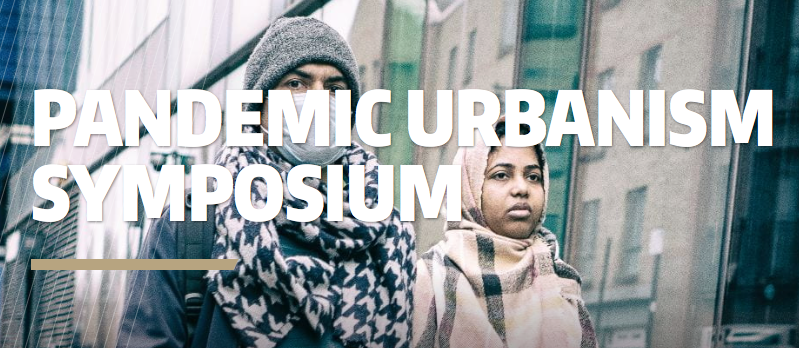
Information
Thomas Mann Fellow Friederike Meyer will give her presentation at the Pandemic Urbanism Symposium in a session titled “Urban Form Beyond the Norm,” from 10:15 – 11:15 AM on May 29, 2020, coauthored by Thomas Mann Fellow Doris Kleilein.
Density, Mobility and Common Good – Towards the Post Corona City
The pandemic reveals the advantages of robust and resilient cities as well as the consequences of insufficient or nonexistent urban planning. The collective experience in the state of emergency provides a chance to accelerate long-overdue demands and concepts for the climate-neutral city in its consequent implementation.
Everything that makes cities worth living in also helps in a crisis like this: a climate-friendly active mobility, flexible spatial models for living and working, affordable housing, sufficient public space, regional economic cycles, inclusive neighborhoods and a well-organized administration. Resiliency depends on how density is organized and designed.
Facing climate change, the dense, mixed-use city is more than ever an answer to the global dilemma of more and more people having to share resources and spaces that are coming to an end. Based on built and proposed projects from Berlin and other European cities, the lecture will outline in which areas the crisis can be a catalyst for urban development towards the common good and what political action needs to be taken.
Friday, May 29, 2020, 9am – 5pm PDT
This event is free and open to all. Registration is required.
Link for remote participation will be provided to registrants.
Participant
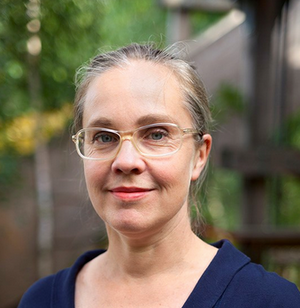
Friederike Meyer, born 1972 in Dresden, studied architecture at the RWTH Aachen and as a DAAD scholarship holder at the University of Washington in Seattle. She also trained as a journalist at the Evangelische Medienakademie in Berlin. Today, she works as an architecture journalist in Berlin. She is interested in the intersection of architecture, urban planning and society. From 2000 to 2017 she was editor of the architecture journal Bauwelt; for several years she has been working as an author for exhibitions and books, moderator and juror. She teaches architectural communication in Kaiserslautern. Friederike Meyer has been editor-in-chief of the newsroom of BauNetz since 2017.
Partner
Organized by current and recent University of Washington doctoral students, with support from the College of Built Environments, the PhD Program in the Built Environment and the Interdisciplinary PhD Program in Urban Design and Planning.





